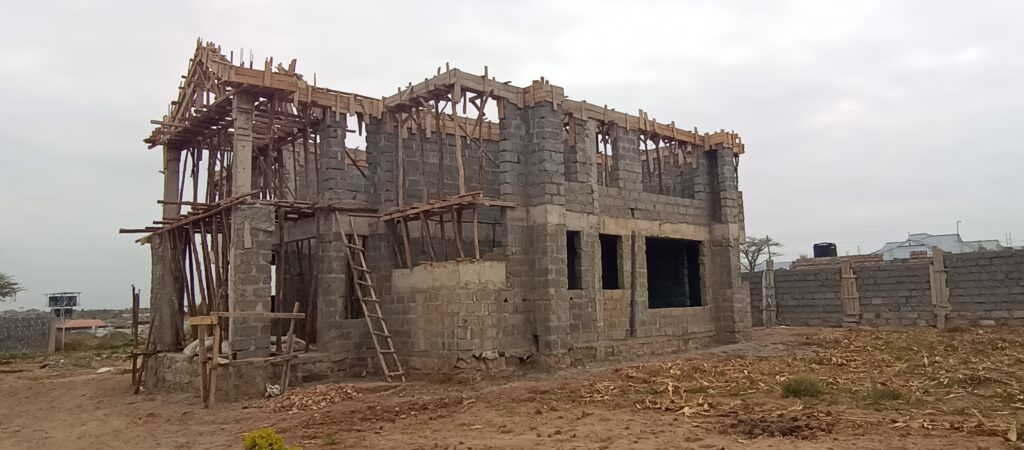Building a home or commercial property in Kenya involves six critical stages that determine your project’s success. Whether you’re constructing in Nairobi, Mombasa, or anywhere across Kenya, understanding these stages helps you avoid costly delays, budget overruns, and quality issues.
At Towerflex Construction, we’ve managed over 200 successful projects and learned that informed clients achieve better results. Here’s your complete guide to the construction process in Kenya.
Why These Stages Matter in Kenya
The Kenyan construction industry operates under strict NCA regulations and county-specific requirements. Projects that skip proper stages often face:
- Regulatory delays costing 2-4 months
- Budget overruns of 20-40%
- Quality issues requiring expensive fixes
- Legal complications from non-compliance
Stage 1: Pre-Project Phase (1-3 months)
What happens: Transform your construction idea into a viable project concept.
Key Activities:
- Define your vision: Clarify project objectives, scale, and long-term goals
- Site selection: Research locations considering accessibility, zoning, and infrastructure
- Initial feasibility: Conduct preliminary budget estimates and financing options
- Regulatory research: Understand county requirements and permit processes
Kenya-Specific Considerations:
- Land verification: Conduct official searches at Ministry of Lands for clean titles
- Infrastructure assessment: Check Kenya Power, water supply, and road access availability
- Legal compliance: Verify foreign ownership laws if applicable
Pro Tip: Engage a land lawyer and surveyor early to avoid costly legal issues later.
Stage 2: Planning and Design Phase (2-4 months)
What happens: Convert your concept into detailed, executable construction plans through three sub-stages.
Sub-Stage 2.1: Project Definition
- Set detailed requirements and quality standards
- Explore design alternatives and construction methods
- Establish realistic budgets based on current market rates
- Confirm financial feasibility and secure financing
Sub-Stage 2.2: Design Development
- Create detailed architectural plans and 3D renderings
- Design structural systems based on soil analysis
- Plan electrical, plumbing, and mechanical systems
- Address Kenya’s climate and seismic considerations
Sub-Stage 2.3: Contract Documentation
- Prepare detailed working drawings and specifications
- Develop tender documents for contractor selection
- Create project schedules and quality control protocols
- Establish payment schedules and performance requirements
Kenya-Specific Design Elements:
- Climate adaptation: Design for tropical climate with proper ventilation and drainage
- Local building codes: Ensure compliance with Kenya Building Code and county guidelines
- Cost optimization: Specify locally available materials and construction methods
Stage 3: Pre-Construction Stage (1-2 months)
What happens: Select contractors and prepare for actual construction work.
Key Activities:
- Contractor selection: Issue tenders to NCA-registered contractors, evaluate proposals, and finalize contracts
- Team assembly: Establish project management structure and assign key personnel
- Site analysis: Conduct detailed surveys, soil investigations, and environmental assessments
- Detailed planning: Create construction schedules, coordinate suppliers, and plan logistics
Kenya-Specific Requirements:
- Regulatory approvals: Obtain building permits, NEMA certificates, and utility approvals
- Local coordination: Establish community relationships and plan for seasonal challenges
- Site security: Arrange appropriate security considering local conditions
Stage 4: Procurement Stage (Ongoing, 1-6 months)
What happens: Secure all materials, equipment, and services needed for construction.
Critical Activities:
- Material sourcing: Develop schedules, identify reliable suppliers, and negotiate terms
- Equipment acquisition: Source construction equipment and plan maintenance
- Labor management: Recruit skilled workers and coordinate subcontractors
- Budget control: Establish cost tracking and payment systems
Kenya-Specific Challenges:
- Quality assurance: Source from KEBS-certified suppliers and verify material authenticity
- Import planning: Consider lead times, currency fluctuations, and customs procedures
- Transportation: Plan for road conditions and seasonal access challenges
Stage 5: Construction Stage (3-18 months)
What happens: Physical construction where plans become reality.
Key Phases:
- Pre-construction conference: Review scope, schedules, and safety procedures
- Site preparation: Clear site, install temporary facilities, and establish storage areas
- Foundation and structure: Execute excavation, foundation, and structural framework
- Systems installation: Complete electrical, plumbing, mechanical, and finishing work
Construction Management:
- Progress monitoring: Daily reviews and weekly schedule updates
- Quality assurance: Regular inspections and material testing
- Safety management: Comprehensive safety programs and incident prevention
Kenya-Specific Considerations:
- Weather management: Plan around rainfall patterns and implement protection measures
- Regulatory compliance: Schedule county inspections and maintain proper documentation
Stage 6: Post-Construction Stage (1-3 months)
What happens: Final testing, inspections, and project handover.
Sub-Stage 6.1: Building Commissioning
- System testing: Verify all electrical, plumbing, and mechanical systems
- Performance verification: Ensure systems meet design specifications
- Documentation: Prepare operation manuals and as-built drawings
Sub-Stage 6.2: Owner Occupancy
- Regulatory inspections: Complete county, fire department, and safety inspections
- Client walk-through: Conduct comprehensive inspections and address deficiencies
- System training: Orient clients on building operations and maintenance
Sub-Stage 6.3: Project Closure
- Administrative completion: Process final payments and complete certifications
- Financial closure: Reconcile budgets and release bonds
- Warranty establishment: Set up warranty coverage and ongoing support
How Towerflex Construction Excels at Each Stage
Our Comprehensive Approach:
Post-Construction: Full commissioning and extended warranty coverage
Pre-Project: Expert site evaluations and regulatory guidance
Design: In-house architects with local expertise and 3D visualization
Pre-Construction: Rigorous contractor vetting and comprehensive planning
Procurement: Established supplier relationships and quality assurance
Construction: Experienced project managers and advanced tracking systems
Ready to Start Your Construction Project?
Understanding these six stages is your first step toward construction success in Kenya. With proper planning and the right construction partner, you can navigate each stage smoothly and achieve your building goals.
Next Steps:
- Free consultation: Discuss your project vision and requirements
- Site assessment: Professional evaluation of your land and local conditions
- Project planning: Detailed timelines, budgets, and design development
- Expert execution: Professional construction management from start to finish

